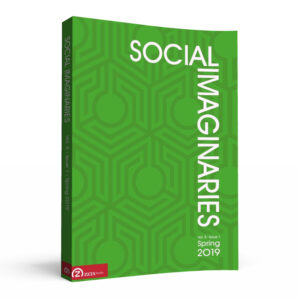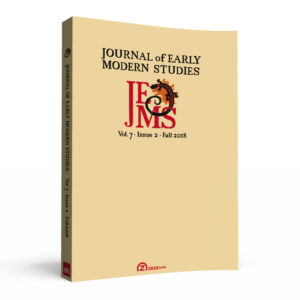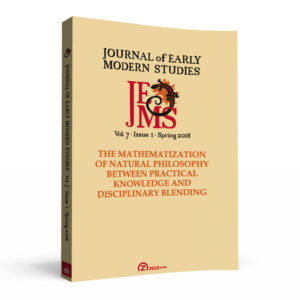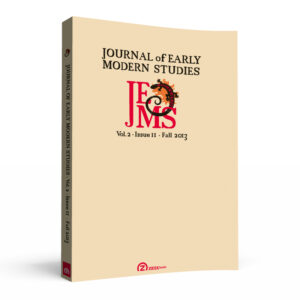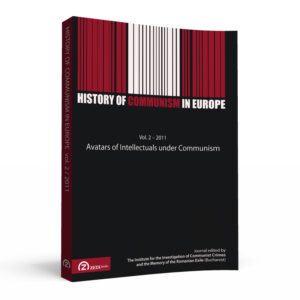TABLE OF CONTENTS
Saulius Geniusas: Editor’s Introduction [OPEN ACCESS]
Claudia Baracchi: The Cosmos of Imagination
Abstract: This essay raises the question of the character and status of imagination in ancient Greek philosophy. It is often said that neither Plato nor Aristotle conceived of imagination in genuinely productive terms. The point, however, is not approaching ancient thought while thinking with Kant, as if we were looking for proto-Kantian insights in antiquity. Ancient thought is not a series of ‘tentative steps’ destined to reach a full-blown articulation in modernity, let alone an anticipation of the first critique. On the contrary, it is essential to acknowledge the discontinuities that make the ancient discourse remote and, in many respects, opaque, hidden from us. On the ground of such assumptions, the essay addresses the understanding of imagination (eikasia, phantasia) in the Greek context, focusing in particular on Plato’s Timaeus. First, we consider how imagination, precisely in its creative aspect, operates at the very heart of philosophical argumentation. Plato’s emphatic awareness of this disallows the rhetoric of philosophy as the discipline of truth (of apodictic necessity, objectivity, and neutrality). In fact, it calls for a profound re-thinking of the relation between creativity and the philosophical turn to the ‘things themselves’. Timaeus imagines the cosmos as a theatrical device: the place of seeing and being seen, of contemplation and the originary emergence of images. This evokes an understanding of imagination outside the order of subjectivity and its faculties, i.e., a meditation on the impersonal character of production and the force of images (of symbols) arising without being constituted by ‘me’.
Justin Humphreys: Aristotelian Imagination and Decaying Sense
Abstract: Aristotelian imagination is widely understood as a psychological power by which retained perceptual states recur in consciousness. According to this view, imagination is decaying sense, a part of the psyche that is parasitic on perceptual acts for its content. This paper disputes this reading and provides an alternative account of Aristotle’s concept of imagination. I argue that Aristotelian imagination is a power of the psyche that is both productive like intellect, and presentational like perception. Unlike perception and intellect, however, imagination does not correctly discriminate among beings, and thus cannot be relied upon to give one knowledge of the world. When one accepts this alternative conception of Aristotelian imagination, it becomes clear how it can take on the peculiar epistemic function of allowing a particular serve as the vehicle of a universal thought. This paper argues that Aristotle’s explanation of valid judgments in geometry depends on the imagination to allow the perception of a particular diagram to give rise to the intellectual grasp of a general proposition.
Gregory S. Moss: Absolute Imagination: The Metaphysics of Romanticism
Abstract: Carnap famously argued that metaphysics unavoidably involves a confusion between science and poetry. Unlike the lyric poet, who does not attempt to make an argument, the metaphysician attempts to make an argument while simultaneously lacking in musical talent. Carnap’s objection that metaphysics unavoidably involves a blend of philosophy and poetry is not a 20th century insight. Plato, in his beautifully crafted Phaedo, presents us with the imprisoned Socrates, who having been condemned to death for practicing philosophy in the Apology, has a dream in which he realizes that he ought to make music. In this dialogue, however, Plato indicates no hint of the scorn that Carnap has for metaphysics—rather Socrates’ friends find him setting Aesop’s fables to verse. In the modern era, Nietzsche re-introduced the ‘music making Socrates’ in his Birth of Tragedy. But Nietzsche is not the first to revive the concept in modern philosophy. Before Nietzsche’s call for a new music-making Socrates, the early German Romantics, in particular Schlegel, explicitly called for the identification of poetry and science in the concept of Poesie. As Schlegel writes: ‘Alle Kunst soll Wissenschaft werden, und alle Wissenschaft Kunst werden; Poesie und Philosophie sollen vereinigt sein.’ On the one hand, in Ion Socrates is not wrong to critique Ion for not knowing the significance of his own work. On the other hand, Socrates himself recognizes in Phaedo that he is guilty of failing to heed the call to make music. Long misunderstood, the Romantic concept of Poesie is not mere irrationalism, for it offers an aesthetic metaphysics of the Absolute that recognizes that the Absolute can only exist if it is known. Romanticism is indeed a philosophy of the Absolute, but one which cannot conceive of any solution to the profound impasses that confront philosophical knowing except by learning to make music.
Jagna Brudzińska: Imitation and Individuation. The Creative Power of Phantasy
Abstract: A crucial feature of our individual biography is grounded in our common corporeal structure. Our life begins with a strong bodily intertwining that has an essential biographical and existential meaning. To elucidate this pre-egological form of connection between subjects, I refer to a peculiar form of sympathetical experience which precedes the intersubjective experience in proper sense. From the genetic phenomenological point of view, sympathetical experience is characterized by a pre-reflective form of intentionality, which I describe as trans-bodily intentionality, as well as by fusional dynamics realised through a special kind of immediate corporeal fantasy. Focusing on the individuation processes of personal life, I show to which degree trans-bodily intentional dynamics result in the dissolution of the subject’s centricity or at least in its fluidification. Such a fluidification, moreover, should be systematically understood as a condition of possibility for the very process of becoming a Self. In my contribution, I discuss how far the corporeal phantasy plays a decisive rule in the creative process of becoming a Self.
Michela Summa: Is Make-Believe Only Reproduction? Remarks on the Role of Fiction in Shaping Our Sense of Reality
Abstract: This paper develops an analysis of the relation between fiction and make-believe based on the achievements of imagination. The argument aims at a “reciprocal supplementation” between two approaches to fiction. According to one approach, pretense or make-believe structures play a crucial role in our experience of fiction. Discussing Husserl’s view on bound or perceptual imagining and Walton’s account of fiction as make-believe, I show why pretense and make-believe cannot thereby be reduced to the mere reproduction of something we would experience as original. According to the other approach, which is exemplified in Ricœur’s work on imagination, fiction exemplifies a productive or creative power of imagination that is not active in pretense or make-believe activities. The reciprocal supplementation between these two approaches concerns the following aspects: On the one hand, I wish show why Husserl and Walton allow us to rectify Ricœur’s claim that make-believe is only reproductive. On the other hand, taking up some of Ricœur’s insights, I wish to clarify why such an impact should be understood in terms of transformation.
Witold Płotka: Twardowski, Ingarden, and Blaustein on Creative Imagination: A Study on Early Phenomenology
Abstract: The article is a critical elaboration of two phenomenological theories of imagination formulated by Ingarden and Blaustein in their discussion with Twardowski. Ingarden, as well as Blaustein were students of both Twardowski and Husserl, however, they defined imagination in two different contexts: whereas for Ingarden a proper way of analysis of imagination is ontology, for Blaustein imagination is the object of descriptive psychology, connected mainly with an aesthetic experience. As a result, the question of creativity of imagination is described in two different, but intertwined ways. For Ingarden, creative imagination is understood as a noematical structure which generates the imagined object as a purely intentional object. Ingarden’s description expresses athe ontological status of the imagined object as ontologically dependent on the act of imagining, and on the content of the imagined object. In his review of Ingarden’s Das literarische Kunstwerk, Blaustein was clear that one has to revise Ingarden’s theory of purely intentional object by adopting it to imaginative intentionality, and aesthetic experience. To elaborate Ingarden’s theory of imagination, Blaustein discusses it also with reference to Twardowski. Blaustein claims that Twardowski’s Cartesian differentiation between perceptive, reproductive, and creative imagination is based on a vague criterion, and moreover it does not refer to two key notions of descriptive psychology, i.e., the notion of the representative content, and the intentional object. As a result of his critique, Blaustein limits the concept of creative imagination to ‘fantasy’, understood as secondary imagination.
Dalius Jonkus: Aesthetic A Priori and Embodied Imagination
Abstract: This paper discusses the modern idea of imagination and its various transformations in the phenomenological conceptual frameworks of Edward Casey, Mikel Dufrenne (1910-1995), Max Scheler (1874-1928) and Vasily Sesemann (1884-1963). I would like to raise and critically assess questions regarding the role of imagination in our consciousness: whether imagination is a productive or reproductive activity; and how, if at all, aesthetic expression limits the imagination. Casey criticizes Dufrenne for his attempt to unite imagination with aesthetic expression. He argues for the autonomy of the imagination but leaves the question of the relationship between the imagination and perception unanswered. Dufrenne partially shares his theory of imagination with Sesemann. Both philosophers claim that imagination is a reproductive activity rather than a productive one in the sense that it is limited by the forms of the material a priori. In other words, aesthetic expression has to obey the principle of correlation between percipiens and perceptum. Creativity becomes possible when the creator is able to reproduce in his expression another subject’s possible perceptivity. Max Scheler emphasized the correlative connection of spiritual activity with the world. He linked the concept of imagination to the practical being in the world. In Sesemann’s aesthetics the role of embodied imagination in artistic creation and the perception of aesthetic objects were also considered. Both authors argued that the connection between imagination and the essential modes of the world’s givenness is guaranteed by the mode of embodied imagination. Both acknowledged that imagination is related to unconscious desires and drive. Both authors stated that the schematisms of imagination express the style of the perception of the world. The fact that imagination is an embodied phenomenon is illustrated by the way it exists in the world, since imagination is essentially a free activity restricted only by “the style of the world’s horizon.”
Roger W. H. Savage: Reason, Action, and the Creative Imagination
Abstract: The exemplary value of individual moral and political acts provides a unique vantage point for inquiring into the role of the creative imagination in social life. Drawing on Kant’s concept of productive imagination, I argue that an act’s exemplification of a fitting response to a moral or political problem or crisis is comparable to the way that a work of art expresses the ‘thought’ or ‘idea’ to which it gives voice. The exercise of practical reason, or phronesis, is akin to the way that a work augments the practical field of our experiences in this respect. For, like a work of art, the act produces the rule to be followed by means of the example that it sets. Accordingly, I explain how the injunction issuing from the act can be credited to the way that the singular case summons its rule. The singular character of the injunction issuing from the act thus brings to the fore the relation between reflective judgment and this injunction’s normative value. The conjunction of reason, action, and the creative power of imagination offers a critical point of access for interrogating the normative force of claims rooted in individual acts. By setting reason, action, and imagination in the same conceptual framework, I therefore highlight the creative imagination’s subversive role in countering hegemonic systems and habits of thought through promoting the causes of social and political struggles.
Mario Wenning: The Dignity of Utopian Imagination
Abstract: The utopian imagination is ambivalent in that it both escapes from, while also critically engaging with contemporary societies and forms of living. This paper calls to mind the dignity of utopian longing as well as common objections against political interpretations of utopia. Philosophical utopias, it is argued, make deliberative use of the imagination by sharpening a sense of possibility and providing reasons for (or against) utopian thought-images. On this account, utopias draw on irony and satire as constructive modes of imagining unrealized potentials and exposing what falls short of these potentials. Thus conceived, the utopian imagination is not the enemy, but an essential aid of practical reason.


